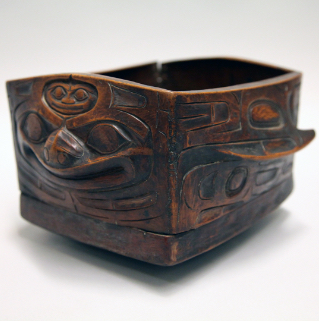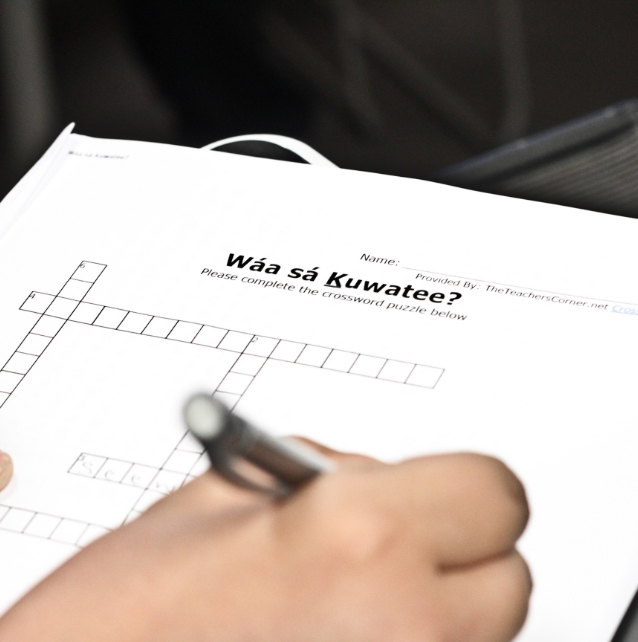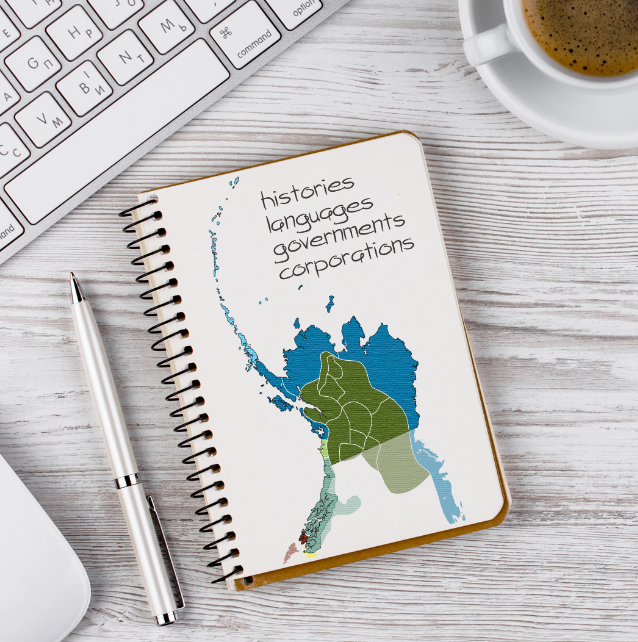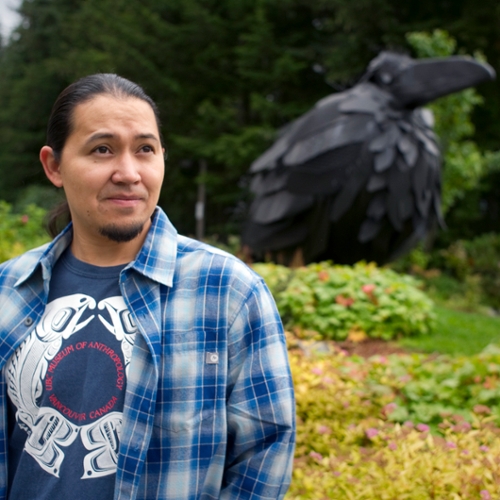Alaska Native Arts, Languages & Studies
- Dáng ḵats’áas eehl díi gudangáay ‘láagang.
- I’m happy you have come/come in. [Haida]
- Haa yoo x̱ʼatángi haa latseeníx̱ gux̱satée.
- Our language will become our strength. [Tlingit]
- Ła gwelga la̱k! La̱mgism, la̱mgism, ła gwelga la̱k!
- The fire is burning, warm yourselves, warm yourselves, the fire is burning! [Tsimshian]
Visual and Performing Arts, Healthy Languages, and Informed Leadership.
As practicing artists and as learners and teachers of the arts, we seek to understand and imitate the ancient masters. In the arts we study Northwest Coast design, weaving, carving, oral and written literatures, performing arts, songs, dances, and the ways these activities connect to each other, ourselves, and our previous and future generations. Our courses in art include Northwest Coast formline design, carving, weaving, and textiles. Students engaging in Alaska Native Arts will be seeking to develop a strong foundation in art.
Choose your Focus

Alaska Native Arts
As practicing artists and as learners and teachers of the arts, we seek to understand and imitate the ancient masters. In the arts we study Northwest Coast design, weaving, carving, oral and written literatures, performing arts, songs, dances, and the ways these activities connect to each other, ourselves, and our previous and future generations. Our courses in art include Northwest Coast formline design, carving, weaving, and textiles. Students engaging in Alaska Native Arts will be seeking to develop a strong foundation in art.

Alaska Native Languages
The X̱aad Kíl (Haida), Lingít (Tlingit), and Smʼalgya̱x (Tsimshian) languages are invaluable and irreplaceable, and should be cherished by all on our ancestral lands. By studying, using, and teaching our language we seek to protect our existing speakers, create new speakers, and ensure that our languages are the languages of power and use.

Alaska Native Studies
Indigenous histories, languages, governments, Tribes, ANCSA Corporations, and heritage organizations are cornerstones of Alaska. By listening to Indigenous voices about cultures, languages, governance, and the realities of colonization, we seek to guide future leaders, and to promote indigenous excellence and acts of decolonization.
Indigenous work, however, is more than just a broadening of equality of opportunity strategies to be more inclusive of Indigenous people. In the context of the academy, Indigenous work refers to the agenda, strategies, tactics, policies, relationship building, actions, and programs designed and implemented to improve access, expand visibility and participation, improve outcomes, and reflect Indigenous cultural, linguistic, historical understandings, and strengths inside academic institutions. It is work that engages horizontal and vertical institutional transformations, building both Indigenous and institutional capability and securing the full participation and engagement of Indigenous Peoples, their nations, and communities, ensuring successful outcomes for Indigenous students and the inclusion of teaching and research of Indigenous knowledge/s, languages, and cultures
Staff & Faculty
X̱’unei Lance Twitchell, M.F.A., Ph.D. (hú/du, he/him)

Professor of Alaska Native Languages
All systems and spaces have space for Indigenous languages, knowledges, arts, and peoples. You can study with us and stand up for Indigenous languages, ways of knowing, and decolonization in revolutionary self-love. Kakḵwa.áaḵw aag̱áa yakḵwadláaḵ: I will try, and I will succeed!
Éedaa Heather D. Burge, B.L.A., M.A.

Assistant Professor of Alaska Native Languages
View profile and contact info